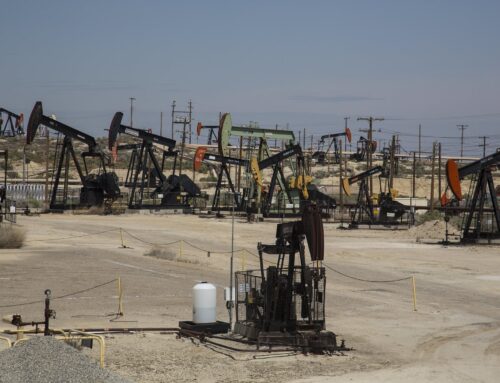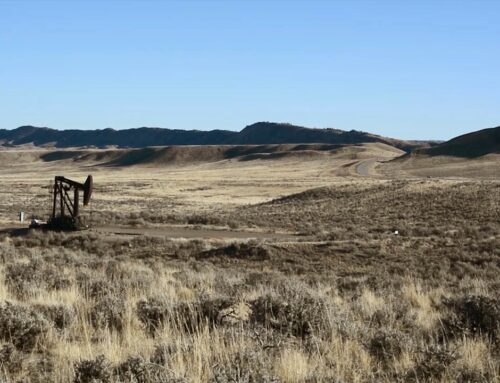In the face of the growing wildfire crisis, the Infrastructure, Investment and Jobs Act (IIJA, P.L. 117-58) provided significant funding for wildfire management and risk mitigation. IIJA also established the Wildland Fire Mitigation and Management Commission (Commission), which is tasked with making recommendations to Congress to mitigate and manage wildland fire. On Wednesday, September 27th the Commission released a long-awaited final report featuring a comprehensive review of the wildfire system and recommendations on wildfire mitigation and management.
The report, ON FIRE: The Report of the Wildland Fire Mitigation and Management Commission, made 148 recommendations that fall under 7 themes:
- Urgent New Approaches,
- Supporting Collaboration,
- Shifting from Reactive to Proactive,
- Enabling Beneficial Fire,
- Supporting and Expanding the Workforce,
- Modernizing Tools for Informed Decision-Making, and
- Investing in Resilience.
The Commission stated that the report represents a comprehensive but not exhaustive list of recommendations that commission members and subject matter experts have reached full consensus on.
The report and the recommendations are organized based on the fire cycle—before, during, and after the fire. Before the fire, recommendations focus on actions in the built and natural environments to reduce impacts. During the fire, actions to improve response coordination and pre-fire planning are needed. And after the fire, actions to improve resilience are required. Other recommendations like building an effective workforce, integrating modern science and technology, and investing for tomorrow apply throughout the entire fire cycle.
Many of the Commission’s recommendations coincide with comments TCS submitted to the Commission and the taxpayer tools for wildfire management proposed in TCS’ most recent wildfire report, Clearing the Smoke: A Closer Look at Federal Spending and Programs on Wildfire.
Regarding wildfire risk mitigation, the Commission made multiple recommendations on improving land use planning, utilizing ignition-resistant structures, and developing standards for electric utility wildfire mitigation plans, etc. TCS likewise recommends risk mitigation and smart redevelopment measures, especially in Wildland Urban Interface (WUI), like smart land use planning and zoning practices and building with fire-proof materials to mitigate wildfire risks. In addition, as TCS and many other subject matter experts, scientists, and indigenous communities have recognized, there is a role for more fire on the landscape. In line with this, the Commission made several recommendations focused on eliminating the regulatory and administrative hurdles to carry out prescribed burns. TCS also agrees with various recommendations made by the Commissions on encouraging fire science and technology, as well as post-fire ecological research.
With respect to evaluating the success of mitigation activities, the Commission recommended changing federal performance metrics to better measure success. Currently, agency performance metrics like acres treated or timber volume output fail to accurately evaluate the effectiveness of treatment – and use of taxpayer resources – in a given area. The Commission found that such performance metrics “incentivize treating areas that can be reached at low cost rather than those with the highest risk or highest restoration potential.” As TCS reported in Clearing the Smoke, the current metrics of acres treated may also have been inflated by double- or triple-counting acres treated using different methods, which may misdirect federal taxpayer resources. The Commission recommends reorienting metrics to measure outcomes, like protected resources or degree of restoration. The Commission also made several common sense recommendations on the subject of collecting better data and increasing accessibility of data to protect communities and encourage fact-based policymaking.
Notably, the Commission made multiple recommendations that would improve budget stability and structures, like creating budget crosscuts to better track all federal wildfire spending and ensuring balanced, robust funding for pre-fire mitigation and post-fire restoration as part of the fire budget. In Clearing the Smoke, TCS also observed that there are many challenges to presenting a comprehensive image of federal wildfire spending, like the lack of a standard definition for what activities and accounts constitute federal wildfire spending. However, opportunities still exist for the federal government to increase cross-departmental tracking and accounting to help identify federal spending trends over time.
TCS also recommended recalibrating mitigation and suppression funding in our report— sustaining funding levels for non-suppression programs will be important in the near term to mitigate fire risks and reduce longer term suppression liability. The Commission reinforced this position and highlighted the importance of pre-fire and post-fire funding, including a recommendation to allow agencies to fund pre- and post-fire work under existing “fire response” appropriations. As a budget group, TCS looks forward to commenting on other budget related recommendations made by the Commission, like a proposal to make the Wildfire Suppression Operations Reserve Fund permanent.
The Commission made other recommendations that will warrant further study and feedback, including a focus on mechanical thinning and investing in wood/biomass utilization. In Clearing the Smoke, TCS cautioned against timber subsidies, which may lead to perverse incentives that undercut overall forest health and risk mitigation objectives. Where timber and other forest products harvest can take place is often determined by road access, commercial viability, and other local conditions that may misalign with wildfire spatial patterns or even undermine overall forest health. The Commission recognized this in the report and agreed that fuel treatment should not be based on commercial viability and, in fact, prioritizing commercial output could be “a significant distraction from and impediment to strategic wildfire mitigation and management”.
In the coming weeks, TCS plans to further examine the report’s findings, and looks forward to working with Congress and the federal agencies to reduce fire risk, create resilient communities, and bring greater transparency and accountability to wildfire spending.










